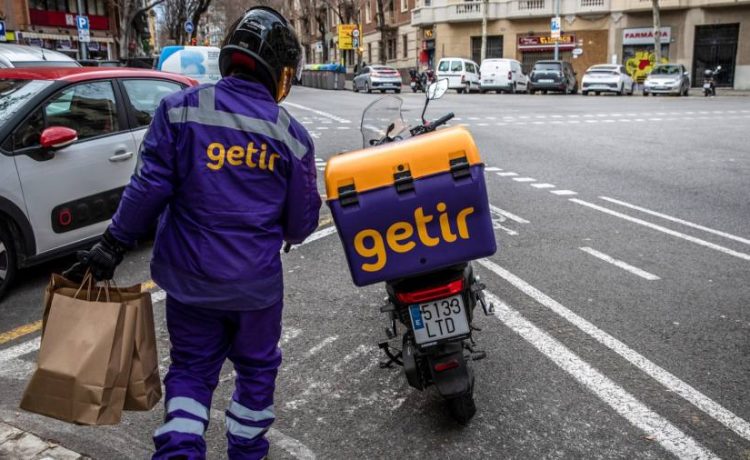Getir, the Istanbul-based online grocery start-up, has closed its acquisition of German rival Gorillas in a deal that values the combined group at $10bn, as consolidation in the rapid delivery app market accelerates.
The deal brings together two of Europe’s biggest beneficiaries of the pandemic’s boom in start-up financing, together raising more than $3bn from venture capitalists since 2020 to grow their services delivering groceries and convenience-store items in as little as 10 minutes.
But as investors turned against lossmaking tech start-ups, several smaller grocery apps have already shuttered or been sold, leaving Getir, US-based Gopuff and Germany’s Flink as the last surviving big players in the sector.
“Markets go up and down, but consumers love our service and convenience is here to stay,” said Nazim Salur, founder of Getir, in a statement confirming the deal without revealing financial terms. “The super-fast grocery delivery industry will steadily grow for many years to come and Getir will lead this category it created seven years ago.”
The deal values Gorillas at around $1.2bn, according to people familiar with the terms, down from $3bn in September last year.
Getir is also cutting its own valuation by around a quarter. After Getir hit a $11.8bn valuation when it raised nearly $800mn in March, the new combined entity is valued at $10bn, with Gorillas comprising 12 per cent of the total. This has left the existing Getir business valued at $8.8bn.
Some of Gorillas’ investors — which include Delivery Hero, Coatue Management, Tencent and DST — will be paid around $40mn in cash, in addition to the equity in Getir, these people said. However, given the drop in valuation, it is likely some Gorillas backers will be left with little or no return on their investment.
Job cuts are expected because of considerable overlap between the two companies’ network of small urban warehouses or “dark stores” in cities such as London, Paris, Amsterdam and Berlin.
Kağan Sümer, the former Bain consultant who co-founded Gorillas in 2020 and has been its chief executive, is also expected to leave the company.
Taking out a rival will allow Getir to lower its customer acquisition costs and drive greater efficiencies in its dark stores and when dealing with suppliers.
After more than a dozen rapid grocery apps launched in the US and Europe by mid-2021, only a handful of independent players now remain.
As competition recedes, investors in the surviving players remain optimistic that cash-rich, time-poor consumers will still be prepared to pay a premium for the convenience of near-instant delivery of daily essentials, even at a time of high inflation.
Getir, whose backers include Mubadala Investment Company, Sequoia Capital and Tiger Global, is hoping to raise more funding early next year, according to people familiar with its plans.
As start-up funding dried up in late summer, Gorillas’ heavy losses forced it to seek a buyer.
People familiar with Gorillas’ finances said last month that the Berlin-based company had spent almost all of the $1.3bn it had raised. It had been losing an average of €1.50 for every €1 it generated in net revenue, burning through tens of millions of euros a month at the peak.
The company took out a loan to keep the business running while Getir completed its due diligence, one person said.
Publicly traded food delivery companies such as Delivery Hero, Deliveroo, Just Eat Takeaway and DoorDash have all seen their share prices fall by around 60 per cent in the past 12 months.
They have all taken a growing interest in grocery delivery, after Delivery Hero became the first to start opening dark stores in 2019.
Last year, Deliveroo launched Hop, a grocery delivery service, in partnership with supermarkets such as Morrisons in the UK. Uber has struck partnerships with Gopuff in the US and UK, while Just Eat Takeaway has partnered with Getir in Europe. DoorDash has taken a large stake in Flink alongside Prosus, one of the world’s largest investors in food delivery apps.






